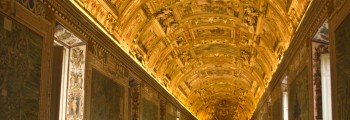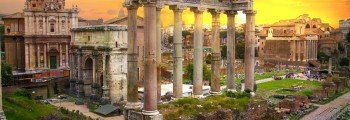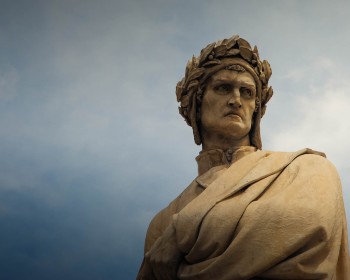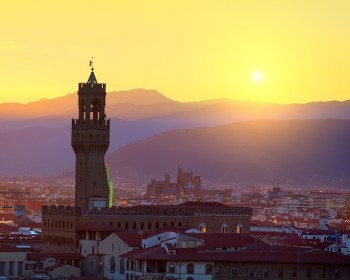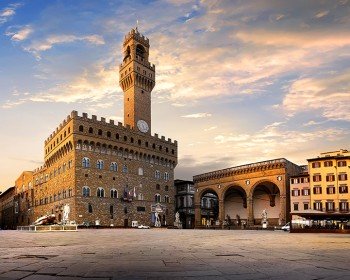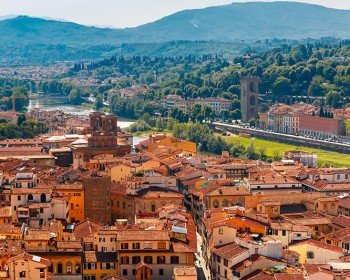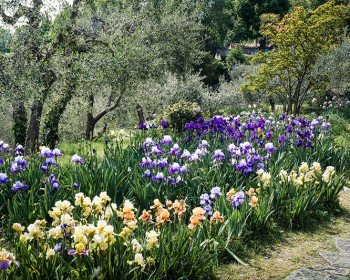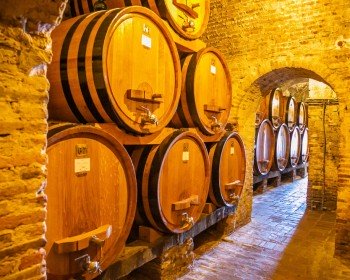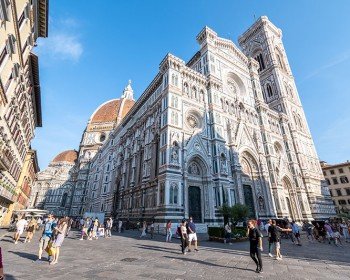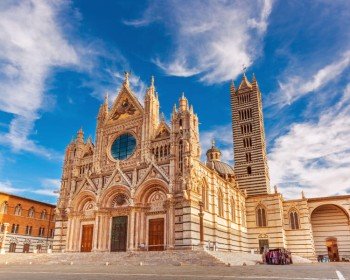Florence, the cradle of the Renaissance, is also the city that has nourished the souls of poets, writers, and artists for centuries. Its landscape, its squares, and, most importantly, its bridges have become the backdrop for countless verses and reflections, where the beauty and serenity of the Arno River blend with the sound of words. A walk across the bridges of Florence is not just a physical stroll, but a journey through literary history and the magic that has inspired some of the most famous poems.
- Ponte Vecchio: The Poetic Heart of Florence
Ponte Vecchio, the oldest and most famous of Florence’s bridges, is the very symbol of the city. Its arches and the goldsmith shops have seen generations of poets, artists, and philosophers, inspired by the panoramic view of the Arno and its reflected serenity. Its beauty also inspired Dante Alighieri, who, in Purgatorio, describes the city as a “garden of art and poetry.” Walking on Ponte Vecchio is like walking through the centuries, breathing in the poetry that lingers in the air.
Poetic Quote:
"Florence, city that gave me life,
with its clear waters and golden bridges,
you are my poetry and my eternal dream." - Ponte Santa Trinità: the magic of the night
Another bridge that has captured the imagination of poets is Ponte Santa Trinità, with its elegant architecture and panoramic view of the city. From this vantage point, Florence appears as a painting that changes with the light of the sunset and the reflection of stars on the Arno. In the quiet of twilight, the beauty of this place invites meditation, much like the poems of Eugenio Montale, who loved the intensity of a Florence that unveils itself in the most intimate moments.
Poetic Quote:
"And in the sunset that sets the Arno ablaze,
words vanish, but the heart remains
suspended in the light of Florence." - Ponte di Mezzo: a connection with nature
Ponte di Mezzo, lesser-known but no less enchanting, connects the neighborhoods of Santa Croce and San Frediano. From here, one can admire the calm-flowing Arno, surrounded by a frame of green that reflects in the water. Nature and the river are protagonists in many poetic works, such as in the verses of Giovanni Boccaccio, who in his Decameron describes the gentle shores of the Arno as a place of leisure and serenity.
Poetic Quote:
"Along the Arno, the river that tells stories,
between the bridges and waters that fade into the sky,
I walk searching for the peace I only find here." - Walks along the Arno: a poetic path
But Florence is not only its bridges; it is also the long river that crosses them, where walking along its banks feels like taking a stroll through poetry. The long walks that line the Arno, between Ponte alla Carraia and Ponte San Niccolò, are perfect for those who wish to savor the calm of the city and let themselves be inspired. These places have witnessed countless walks by poets and writers, from Montale to Mario Luzi, who drew inspiration from the slow flow of water, the lights of the city, and the tranquility that reigns along the river.
Poetic Quote:
"On the banks of the Arno, the world stops,
and in its reflection, every thought is read
that poetry has written in the heart of the city." - Boboli Gardens and the Cypress Avenue: Where Nature Meets Poetry
Not far from the Arno, the Boboli Gardens are another place where poetry blends with nature. With its winding paths and breathtaking views of the city, Boboli has been, and continues to be, a source of inspiration for poets and artists. Walking among the cypress trees and statues, it is easy to imagine how art and poetry nourish each other, finding in the natural beauty of Florence an inexhaustible source of reflection.
Poetic Quote:
"Every step in the Boboli garden
is a verse that intertwines with the air,
every tree a rhyme that speaks to us of beauty." - The National Library and the Writers’ Path
Finally, one cannot forget the connection between Florence and writing. The National Library, with its vast literary heritage, is a point of reference for all those who love poetry. Here, among the shelves filled with volumes, one breathes the atmosphere that inspired authors such as Alda Merini, who found in the beauty of Florence a continuous source of inspiration.
Poetic Quote:
"Florence is a library of verses,
every corner a book to leaf through,
every step a poem to live."
Conclusion:
Florence is the city where poetry is written in the air, in the waters of the Arno, and in its historic bridges. Every step on these ancient streets is an invitation to reflect, to immerse oneself in the words that the city itself has given to the world. Walking along the Arno, one feels part of a poetic tradition that has spanned the centuries, a deep connection between art, nature, and literature that continues to inspire all those who lose themselves in its timeless beauty.

